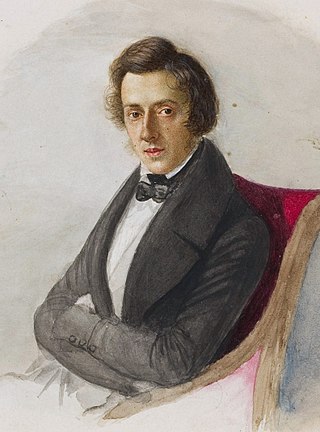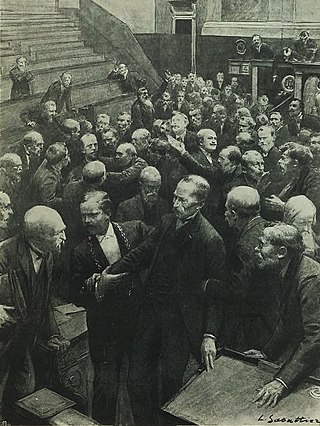
The Pont du Gard is an ancient Roman aqueduct bridge built in the first century AD to carry water over 50 km (31 mi) to the Roman colony of Nemausus (Nîmes). It crosses the river Gardon near the town of Vers-Pont-du-Gard in southern France. The Pont du Gard is the tallest of all Roman aqueduct bridges, as well as one of the best preserved. It was added to UNESCO's list of World Heritage sites in 1985 because of its exceptional preservation, historical importance, and architectural ingenuity.

François Alexandre Frédéric de La Rochefoucauld, 7th Duke of La Rochefoucauld was a French social reformer.
In Freemasonry, regularity is one of the factors by which individual Grand Lodges judge whether to recognise one another for the purposes of allowing formal interaction at the Grand Lodge level and visitation by members of other jurisdictions. Each individual Grand Lodge determines which other Grand Lodges it considers Regular.

Pierre Paul Henri Gaston Doumergue was a French politician of the Third Republic. He served as President of France from 1924 to 1931, succeeding Alexandre Millerand, who had resigned.

Villeneuve-lès-Avignon is a commune in the Gard department in southern France. It can also be spelled Villeneuve-lez-Avignon.

The Grand Orient de France (GODF) is the oldest and largest of several Freemasonic organizations based in France and is the oldest in Continental Europe. The Grand Orient de France is generally regarded as the "mother lodge" of Continental Freemasonry.

Prince Maximilian of Saxony was a German prince and a member of the House of Wettin. He was the sixth child; however, the third child to survive childhood, and youngest surviving son of Frederick Christian, Elector of Saxony, and the German composer Duchess Maria Antonia Walpurgis of Bavaria.

The Études by Frédéric Chopin are three sets of études for the piano published during the 1830s. There are twenty-seven compositions overall, comprising two separate collections of twelve, numbered Op. 10 and Op. 25, and a set of three without opus number.

Princess Wilhelmine of Baden, was by birth a Princess of Baden from the House of Zähringen and by marriage Grand Duchess consort of Hesse and by Rhine. Her descendants include the last emperor of Russia, Nicholas II and his wife Empress Alexandra Feodorovna, King Charles III of the United Kingdom, King Felipe VI of Spain, and other members of European royalty.

Roger Martin du Gard was a French novelist, winner of the 1937 Nobel Prize in Literature.

The Grand Orient of Belgium is a Belgian cupola of masonic lodges which is only accessible for men, and works in the basic three symbolic degrees of freemasonry.

Charles-Frédéric, comteReinhard was a Württembergian-born French diplomat, essayist, and politician who briefly served as the Consulate's Minister of Foreign Affairs in 1799. A Girondist during the early stages of the French Revolution, he was dispatched to several countries before and after his ministerial mandate. In 1806–1807, he was appointed Consul and Resident to Moldavia, and subsequently arrested by the Russian Empire for one year. Reinhard was promoted under the Bourbon Restoration governments, which he represented to the German Confederation, and continued his political career under the July Monarchy.

Aiguèze is a commune in the Gard department in the Occitanie region of Southern France. In 2016, it had a population of 217. Since 2005, Aiguèze has been a member of Les Plus Beaux Villages de France, the first such location in Gard.

Rochefort-du-Gard is a commune in the Gard department in southern France.
Continental Freemasonry, otherwise known as Liberal Freemasonry, Latin Freemasonry, and Adogmatic Freemasonry, includes the Masonic lodges, primarily on the European continent, that recognize the Grand Orient de France (GOdF) or belong to CLIPSAS, SIMPA, TRACIA, CIMAS, COMAM, CATENA, GLUA, or any of various other international organizations of Liberal, i.e., Continental Freemasonry. The larger number of Freemasons, most of whom live in the United States–where Regular Freemasonry holds a virtual monopoly–belong to Masonic lodges that recognize the United Grand Lodge of England and do not recognize Continental Freemasons, regarding them as "irregular".

The Affair of the Cards, sometimes called the Affair of the Casseroles, was a political scandal which broke out in 1904 in France, during the Third French Republic. It concerned a clandestine political and religious filing operation set up in the French Army at the initiative of General Louis André, Minister of War, in the context of the aftermath of the Dreyfus affair and accusations of anti-republicanism made by leftists and radicals against the Corps of Officers in the French Army who accused it of being a final redoubt of conservative Catholic and Royalist individuals within French society.
The history of Freemasonry in Belgium reflects the many influences on what is now Belgium from the neighbouring states.

Irreligion in France has a long history and a large demographic constitution, with the advancement of atheism and the deprecation of theistic religion dating back as far as the French Revolution. In 2015, according to estimates, at least 29% of the country's population identifies as atheists and 63% identifies as non-religious.

The De Coninck House is a historic property located at Store Kongensgade 72 in central Copenhagen, Denmark. It takes its name after Frédéric de Coninck for whom it was built in the 1790s.
















